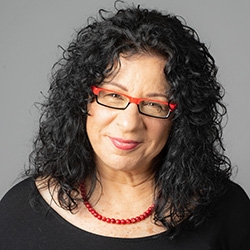

NVC Resources on Connection
-
In this brief introduction to The Work from Byron Katie, Arnina shows the connection of The Work to Nonviolent Communication. Arnina points out how the first two questions of The Work correspond to the observation step of the NVC process, and invites us into deeper self-inquiry.
-
When people get hurt or harmed, how can we restore trust, safety and connection in the community? A restorative approach which focuses on who got hurt and how can we restore it? Rather than whose fault is it and how can we punish them?
-
What do we do when someone speaks to us in a way that doesn’t feel respectful? In this video, Oren Jay Sofer explores how NVC invites us to listen for the feelings and needs behind harsh or judgmental words — not because we “should,” but because it gives us more choice and freedom in how we respond.
-
Have you ever used the phrase "it was just a miscommunication."? We're often good at identifying when communication breaks down but not so good at finding out what went wrong and how we can improve. In this NVC Life Hack, we take a look at different types of communication requests and how they play out in a role play.
-
Without self-acceptance any attempt at growth and transformation, even while parenting, can easily become a path to self-judgments and another yardstick against which to measure ourselves as falling short. Instead, we can practice 1 minute a day or more, or while doing other tasks, to develop the self-compassion and self-acceptance needed to grow both new habits and our capacity to meet our children with calm and compassion.
-
Receiving anger from another can be a reactive trigger for many of us. In this brief segment, Arnina provides us a strategy for staying in the conversation instead of physically leaving.
-
When you don't have a sense of being heard you can apply skills to help you can interrupt cycles of reactivity and resentment, and create connection. Let's look at six ways that will support you in being heard. These are clarity about the topic and needs; supportive conditions; respect for autonomy; sharing your intention; attending to emotional security; and making clear requests.
-
Responding to your own reactivity is an inside job. Robert reveals how your reactions are often a secondary reaction to a triggering stimulus, and that accepting responsibility for your reactions can lead to less blame and more inner peace.
-
When we care about our cause and want to mitigate disaster, we may become reactive. However, transformation comes through connection, rather than convincing, judging, criticising, controlling, and making demands of others. To inspire change, get curious about how they relate to the topic – and get support for yourself elsewhere to process grief, become more present and compassionate, speak self-responsibly, and make requests.
-
Often, honoring someone’s choice supports more connection. Thus, checking in with someone’s choice to listen or not (offering autonomy) sets the stage for being heard more fully. On the other hand, when someone has the perception that you are talking to them without considering their choice, resentful listening might result. Here are ways to mindfully check in about choiceful listening before starting a conversation.

Quick Links
Subscription Preferences
Stay In Touch!
Looking for ways to keep up with NVC Academy news, get special offers, free resources, or words of inspiration? Here are five ways to stay engaged:










